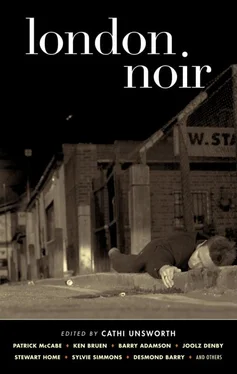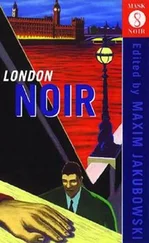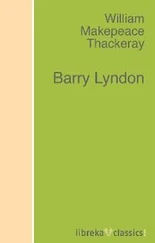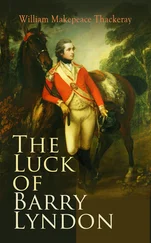Desmond Barry - London Noir
Здесь есть возможность читать онлайн «Desmond Barry - London Noir» весь текст электронной книги совершенно бесплатно (целиком полную версию без сокращений). В некоторых случаях можно слушать аудио, скачать через торрент в формате fb2 и присутствует краткое содержание. Город: New York, Год выпуска: 2006, ISBN: 2006, Издательство: Akashic Books, Жанр: Детектив, на английском языке. Описание произведения, (предисловие) а так же отзывы посетителей доступны на портале библиотеки ЛибКат.
- Название:London Noir
- Автор:
- Издательство:Akashic Books
- Жанр:
- Год:2006
- Город:New York
- ISBN:978-1-888451-98-6
- Рейтинг книги:4 / 5. Голосов: 1
-
Избранное:Добавить в избранное
- Отзывы:
-
Ваша оценка:
- 80
- 1
- 2
- 3
- 4
- 5
London Noir: краткое содержание, описание и аннотация
Предлагаем к чтению аннотацию, описание, краткое содержание или предисловие (зависит от того, что написал сам автор книги «London Noir»). Если вы не нашли необходимую информацию о книге — напишите в комментариях, мы постараемся отыскать её.
Cathi Unsworth
Sounds
Melody Maker
Purr
Bizarre
The Not Knowing
London Noir — читать онлайн бесплатно полную книгу (весь текст) целиком
Ниже представлен текст книги, разбитый по страницам. Система сохранения места последней прочитанной страницы, позволяет с удобством читать онлайн бесплатно книгу «London Noir», без необходимости каждый раз заново искать на чём Вы остановились. Поставьте закладку, и сможете в любой момент перейти на страницу, на которой закончили чтение.
Интервал:
Закладка:
I shook the paper and sighed, kind of tired. You could hear the Pandas blaring nearby. I slid into a cinema and tried not to hear what I was hearing. Almost inevitably, there was Edgar — smiling down at me from the screen. How could he possibly have known I was in the city? I thought ruefully. Could my cover possibly have been blown?
It couldn’t be, I concluded. Not even the great Scales of Justice detective could have managed to pull off a coup like that. I began to relax as I watched him bestride the screen. I dwelt on all his famous cases: The Mystery of the Burnt-Out Candle; Investigation at Honeydew Farm; The Willow Tree Murders.
“I know all about the dancehall,” he said. “That’s my job — I’m here to help.”
I was grateful to him for saying that, for I knew if anyone was able to help it was Edgar Lustgarten — having lived through the days when the streets of the great city had been the same as they were in the photograph, shiny and wet and full of gray overcoats, with great big double-deckers bombing around and Big Ben regally resounding across the world.
“Would you like to know what was playing that night?” he asked me. “It was ‘Who Do You Know in Heaven?’ by the Ink Spots.”
“‘Who do you know in Heaven?’” I repeated, as the colored lights flickered above the door of THE PALAIS.
There can be little doubt that The London Assignment will go down in the annals as one of the most magnificent operations ever undertaken by The Organization. Mahoney, I knew, would be especially proud.
I couldn’t believe it when I arrived in Rayner’s Lane. I couldn’t even remember how I got there. There was a dancehall, but it wasn’t the one I was after. It hadn’t even been built until 1960. Anyhow, it was boarded up and left to go to rack.
I went into another café and had a cup of tea. My hands were blue and I was shivering.
I didn’t want to hear it but they fell from the lips of a man sitting opposite. In my father’s voice. The words: “We’re rubbish, us Irish, and all our children — they’ll be rubbish. We don’t even know how to love or kiss or dance. All we can do is dress in rags. If we were in London now, that would be different. We’d deck ourselves in the finest of silks and we’d stroll down Pall Mall with our proud heads held high. Then do you know what we’d do? We’d go off to dinner in some swanky hotel, and after we’d called a toast to ourselves, we’d take a cab off to a dancehall — we wouldn’t really care where it was, just so long as the Inkspots were playing — and what we’d do then is we’d foxtrot and waltz until our feet were sore and bruised.”
He was leaning over to kiss her when I knocked over the teacup, its contents dribbling onto my feet.
I think one of the most beautiful days I can ever remember was Boxing Day three years ago. It had been snowing constantly and the city looked like something out of a fairy tale — as though it had been evacuated especially for me. On Trafalgar Square, the Landseer lions appeared even more august than usual, with their Mandarin moustaches of dusty white ice.
Starched and blue, Soho did my heart good. In the gutters, hardened wrappers possessed a special kind of poetry. It was like being a child all over again, when I’d walk the roads of the little country town which I haven’t, sadly, been back to now for many years now.
I’m looked after here — I’ve accepted this country as my home. I have a flat the Council gave me — it’s not far from Fenchurch Street, in the suburb of Aldgate.
There’s a café which I go to, near Leadenhall Market. I sit at the back. The owner is an Italian — he fancies himself an intellectual. He thought I was writing a West End play. “No,” I told him, “I’m writing a novel. A little thriller I’ve titled The London Assignment. ”
He took up my notebook and read — with superiority: “Once upon a time there was a young boy who lived in a squat. He had to leave it for reasons best left unreported. The city in those days was as though a place under siege. Emmanuelle was playing at The Odeon. A Clockwork Orange was showing somewhere else. On April 26, an old tramp, who happened to be from Ballyfuckways in the Irish county of Mayo, was stumbling good-humoredly through an underpass, throatily declaiming an old ballad, when he was confronted by three youths — each of them sporting a bowler hat and with a single eye mascaraed. They beat him with their walking canes and left him for dead. A bomb blew out the windows of a restaurant that night — on Frith Street, in Soho. Thirteen people were injured. Carroll’s Number Six cigarettes cost fifteen pence for ten.”
He handed me back the notebook and smiled — in that unfortunately unappealing, superior way.
“Did you ever hear of Griffith’s theory of consistent memory?” he asked me. He then explained it, in even and measured tones, clearly anticipating my difficulties with its complexity.
“It’s like this,” he continued, “consciousness prompts you to hypothesize that the story you’re creating from a given set of memories is a consistent history, justified by a consistent narrative voice...”
I half-expected Edgar Lustgarten to appear out of the throng outside, airily drift up to the window, and press his gaunt face to the grimy glass. After a minute or two of this unsolicited advice, I no longer heard a word he said.
What must Sinclair Vane — complete stranger, retired physiotherapist and formerly of 7th (Queen’s Own) Hussars — and indeed his wife, have thought when he returned to Frognal Walk Hampstead one night in 1973 to find his parlor window broken open and me, right there in his sitting room, talking to myself and clutching what I had decided was a lethal weapon — in reality a wholly amateur attempt at an imitation firearm, fashioned from a branch I’d found outside? I can only surmise he received the shock of his life. My black bomber jacket was draped across my shoulders as I shivered and menacingly narrowed my eyes. I think I might have giggled a little, in what I thought was a sinister fashion.
“I’m the most feared terrorist in Ireland,” I said. “You’re going to pay for the sins of your country. I’m sorry to have to tell you but that’s the way it is. I’m a soldier, you’re a soldier. You’re going to die, Mr. Vane.”
If I wanted to describe him, I would say he was a young version of Edgar Lustgarten — still retaining most of his hair, complete with touches of distinguished gray.
I encountered him once — a number of years after my discharge from Brixton. The snow had passed and the gutters of Soho had been recently rinsed clean by a deluge of rain, twists of steam all about me rising up into the easeful autumn sky.
He was sitting by the window of a new European-style coffee bar, surrounded by chatting white-T-shirted youths and looking so out of place. It was hard for me to do it but I was glad afterwards that I had made the effort. At first he didn’t recognize me when I said his name: Sinclair Vane.
As might have been expected, he formally stood to attention and extended his hand to shake mine.
We didn’t talk much about that night. His soul was still saddened by the recent passing of his wife.
“She was an angel, you know. She really was.”
I thought of her, his angel, as she’d encountered me that ridiculous night — weeping hysterically in the doorway by the stairs. Before Sinclair had expertly calmed her down. I recalled him in that photo on their mantelpiece — battalion commander S. Vane, in complete battledress, authoritatively squinting in the Egreb sun.
I don’t know why I thought it, but it was as clear as day as I sat in the Sir Richard Steele one still and uneventful afternoon — this image of myself and Sinclair sitting so comfortably in a London black cab, gliding along before coming to a halt just outside a dancehall whose entrance was lit by a string of warm and inviting multicolored lightbulbs.
Читать дальшеИнтервал:
Закладка:
Похожие книги на «London Noir»
Представляем Вашему вниманию похожие книги на «London Noir» списком для выбора. Мы отобрали схожую по названию и смыслу литературу в надежде предоставить читателям больше вариантов отыскать новые, интересные, ещё непрочитанные произведения.
Обсуждение, отзывы о книге «London Noir» и просто собственные мнения читателей. Оставьте ваши комментарии, напишите, что Вы думаете о произведении, его смысле или главных героях. Укажите что конкретно понравилось, а что нет, и почему Вы так считаете.










